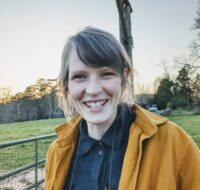Vision, Mission, Values
Vision
Reduced Inequities,
Increased Access to Knowledge.
A sustainable knowledge landscape characterized by diverse communities having equitable access to:
- the resources needed to create and share knowledge,
- the ability to control and benefit from the information they produce,
- the knowledge, tools, and tactics needed to shift existing structures to support field level leadership of marginalized groups that are disproportionately impacted by current structures (e.g., technological infrastructures, institutional policies, organizational models, governance design).
Mission
Educopia connects diverse(1) knowledge communities with resources(2), power(3), and each other(4).
(1) Knowledge takes many forms
(2) Knowledge travels through resources
(3) Knowledge is power
(4) Knowledge is nurtured in community
Values
Caring
We nurture communities that nurture their members.
Educopia recognizes that communities are made up of people, and that the community thrives when its individual members do. We encourage bridge-building and collaboration, and we cultivate a sense of nurturing and kindness across all of our initiatives.
Inclusive
We strive for a welcoming, safe, supportive environment for all.
Educopia works to create conditions for inclusivity in our community structures, spaces, and interactions – for example, through a focus on anti-racism, feminism, and accessibility. Our organizational structures, community governance models, and facilitation approaches are designed to create space for multiple perspectives.
Community-driven
We empower community members to take collective action.
Educopia believes communities should be member-owned and controlled, with the power to make their own strategic, operational, and financial decisions. We use facilitation and assessment techniques that center the needs of community members.
Transformational
We strive for systemic change.
Educopia helps organizations across different domains work together to develop and to demand more open, accessible, and affordable systems to support knowledge production, collection, preservation, and dissemination.
Open
We value open exchange of and access to knowledge.
Educopia contributes to the community of open knowledge in order to remove barriers to information and advance open access initiatives. We aim to be transparent about the assumptions that underlie our research and community facilitation processes, and we freely share our tools and frameworks so that others may build upon, improve, and benefit from our work.
Accountable
We value radical transparency coupled with reliability and responsiveness.
Educopia strives for transparency in our organizational processes, hiring practices, finances, and values. We take responsibility for our communities, their activities, and their outputs, and we support a culture of professional honesty and integrity.
Our Vision and Mission are based on our work over the last eighteen years, during which time we have both witnessed and experienced how:
- A “lack of social capital and networks, lack of relationships with funding sources, limited opportunities for advancement, and inadequate salaries”(1) describe common conditions faced by marginalized identities in the U.S. nonprofit sector. Knowledge organizations, specifically, often struggle to operationalize equity.
- Extractive practices decenter the voices of marginalized communities from decision-making regarding curation and long-term access of the information they produce.
- While a more diverse and equitable cultural record rationalizes funding support for large, multi stakeholder initiatives within the knowledge landscape(2), the common lack of diversity in the strategic leadership of these initiatives does not reflect this commitment.
(1) Building Movement Project, Race to lead revisited: Obstacles and Opportunities in Addressing the Nonprofit Racial Leadership Gap.
(2) Nothing About Us Without Us
Governance
Educopia’s work is overseen by an all-volunteer board representing the professional and academic fields that have an active interest in the organization’s mission and vision.
The three Co-Directors lead Educopia Institute’s day-to-day operations. The Co-Directors propose to the Board new opportunities, strategic partnerships, and ongoing directions for the Institute’s research projects and affiliated communities. These roles are paid, full-time positions.
The Board of directors works closely with the Co-Directors to ensure all work undertaken by Educopia fulfills its mission and that its operations remain financially stable and sustainable. The Board approves budgets, oversees audits, and reviews all prospective plans and proposals. It also evaluates the results of Educopia’s work during its quarterly meetings.
Members of the Board are not employees of Educopia Institute and are not paid for serving on the board. There is a non-compensation clause in the bylaws concerning Board service.

Kathleen Fitzpatrick
President
Jennifer Vinopal
Treasurer
Beth Bouloukos

Jennifer A. Ferretti

Bergis Jules

Lupe Solorio

Loretta Parham

Bethany Nowviskie
Staff
The Educopia Institute is run by a small group of individuals with a passion for networking diverse knowledge communities for collective action.

Jackson Huang
Program Officer for Sustainable Digital Infrastructures
jackson.huang@educopia.org
Aloma Antao
Marketing & Communications Manager
aloma.antao@educopia.org
Nancy Adams
Program Assistant, Library Publishing Coalition
nancy@educopia.org
Racquel Asante
Co-Executive Director
racquel@educopia.org
Katherine Kim
Co-Executive Director
katherine.kim@educopia.org
Brandon Locke
Program Officer for Community Cultivation
brandon@educopia.org
Eric Martin
Administrative Coordinator for Operations
eric@educopia.org
Jessica Meyerson
Co-Executive Director
jessica@educopia.org
Melanie Schlosser
Senior Community Facilitator
melanie@educopia.org
Rachel Mattson
Senior Consultant & Project Manager
rachel.mattson@educopia.org
History
Connecting knowledge communities around shared goals since 2006.
Filling a Critical Gap
Educopia was founded in 2006 to fill a critical gap in the information management landscape by providing an administrative infrastructure to facilitate and coordinate the work of collaborative communities.
We created an organizational structure that would energize a community of players to do their work in concert for mutual benefit and maximum impact — while ensuring that the joint work serves to complement and amplify the vital work done in their local organizations.
Casting a Wider Net
System-wide change requires system-wide involvement.
Right now, most networks don’t yet include all of the stakeholders necessary to bring about systemic change. Knowledge organizations have largely worked within their own silos, but each is an essential contributor within a bigger system of knowledge creation and dissemination.